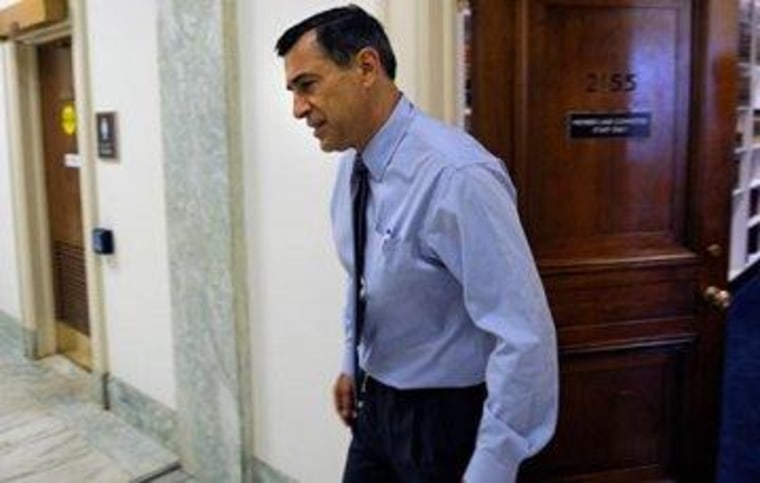The discredited IRS controversy clearly didn't work out the way House Oversight Committee Chairman Darrell Issa (R-Calif.) had hoped, to the point that he no longer remembers the serious-but-false allegations he carelessly threw around just a month ago. The far-right Californian now wants to "expand" his investigation, which is a pleasant-sounding euphemism for, "The questions I asked produced answers that didn't fit my preconceived narrative, so I've come up with new ones."
And this week, after Issa grew tired of his broken old toys, he found something new to play with: officials at the Federal Election Commission apparently asked the IRS's tax exemption division last year about the status of some conservative political groups. Issa pounced, ordering the FEC to produce "all documents and communications between or among any FEC official or employee and any IRS official or employee for the period January 1, 2008 to the present."
So what seems to be the trouble? There's no evidence that the IRS shared private information with the FEC, but Issa and his allies want to know if maybe it happened anyway, and if there's some convoluted way to connect this to the debunked "scandal" Issa was so invested in.
As Dave Weigel explained, there's just not much here.
This level of scrutiny, with this much evidence, is a puzzle to some former FEC commissioners. "From what I've seen so far this doesn't look like anything," said Larry Noble, a Democratic appointee until 2000 who now advocates for public funding of elections. "It looked like what happened was that the staff contacted the IRS and asked for what was public. When I was there, certainly, it was always clear that the IRS would not give out anything that was not public. The IRS has a list of c3 groups, but it's often out of date, so people check with the source. This looked like a routine inquiry for public information."
A former Republican FEC commissioner said largely the same thing.
Where Issa sees a potential political scandal, everyone else sees routine and uncontroversial bureaucracy.
Tax Analysts reported this week:
"There are many legitimate or at least innocuous reasons for the FEC and the IRS to be sharing information about politically active nonprofits. The two agencies share regulatory oversight authority," [James P. Joseph of Arnold & Porter LLP] said.Ofer Lion of Hunton & Williams LLP said it makes sense for the IRS and FEC to talk to each other when dealing with politically active tax-exempt organizations and applicants. "Most of this probably falls within the FEC's field of expertise anyway, so it makes sense that they would collaborate," he said. He added that it would be disastrous if the two agencies went after organizations for political reasons but that he sees no evidence yet that they have done that.John Pomeranz of Harmon, Curran, Spielberg & Eisenberg LLP said it's possible an FEC staffer contacted Lerner to find out if a particular group had tax-exempt status, which is public information. If Lerner provided an answer, that would be fine, he said."It would be great if everybody went through official channels to get information like that, but I think there are a lot of people who rely on contacts inside the IRS to get a quick answer when it takes too long to get an answer the other way," Pomeranz said.Gregory L. Colvin of Adler and Colvin said he is not surprised the IRS and FEC contacted each other regarding the AFF and other organizations that spend money on broadcast advertising featuring candidates for federal office. He said that for years the two agencies have been criticized for not coordinating their enforcement of tax and election laws, which "overlap in some respects and leave gaps in others."
In other words, the "scandal" is that some folks at the FEC were looking for official information one a couple of political groups that were flouting tax-exempt rules, and instead of following bureaucratic, inter-agency procedures, they just sent emails to the IRS.
If you care deeply about bureaucratic, inter-agency procedures related to the FEC and the IRS, this might be fascinating, but if Darrell Issa wants the political world to stay awake, he's going to have to do better than this.
